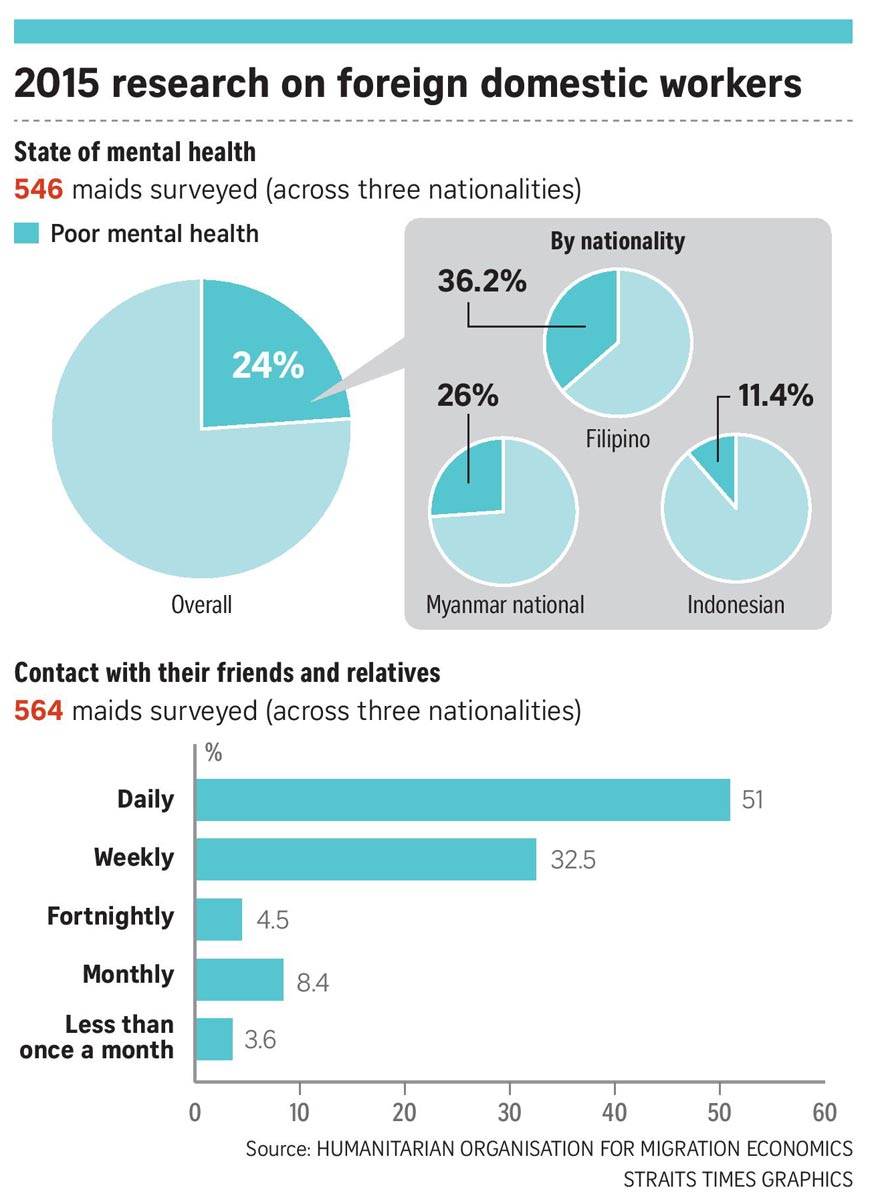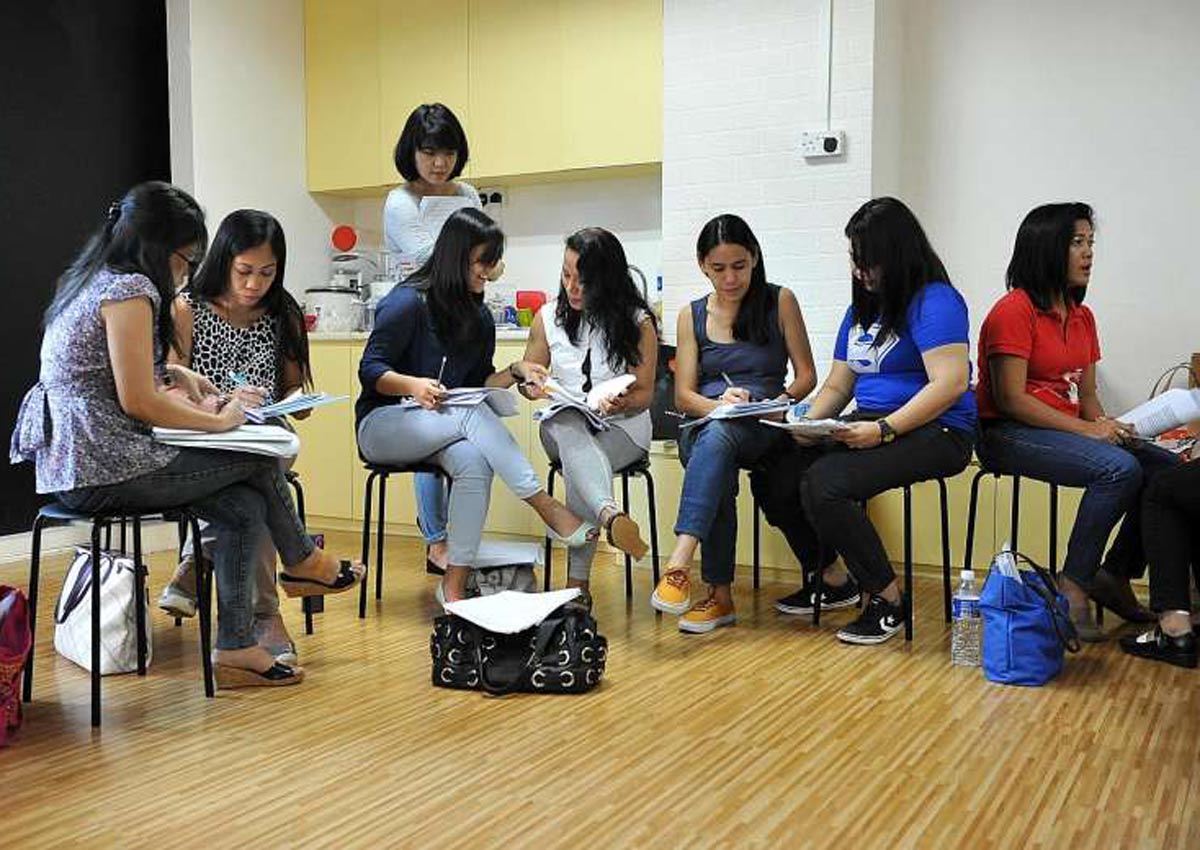Some maids in Singapore are being trained to recognise signs of mental stress and to offer help, in a move to improve mental health support for foreign domestic workers here.
The aim is to help distressed domestic workers who have mental stress symptoms that go unidentified, or do not know where to go for help.
By next month, 39 Filipino foreign domestic workers would have completed the training, an initiative by the National University of Singapore (NUS) and Humanitarian Organisation for Migration Economics (Home), a migrant worker welfare group.
One participant, Ms Robina Lavato, 43, for instance, now knows what to do if she spots symptoms of depression, such as being withdrawn and losing sleep, in her friends. She will plan activities they enjoy to cheer them up.
If the situation deteriorates and the friend talks about suicide, Ms Lavato knows it is time for professional help and she has the numbers to dial.
“The idea here is for them to serve as a bridge between the professional mental health community and their own community,” said the research initiative’s principal investigator, Dr Keng Shian-Ling, assistant professor at the Department of Psychology at NUS.
A study by Home last year found that more than one in five of the 546 maids from Indonesia, the Philippines and Myanmar polled had psychological distress. This was based on a measurement of nine markers, including depression and anxiety.
Filipino domestic workers fared the worst, with 36 per cent experiencing mental distress, compared with 11 per cent in the Indonesian workers and 26 per cent among those from Myanmar.
Researchers decided to train Filipino maids as “paracounsellors” as they seemed the most vulnerable, said Dr Keng.
More than 200 maids signed up for the training but there are spaces for only 40.
Last month, clinical psychologist trainees Marian Wong and Sudev Suthendran started training the women, who were divided into two groups. The trainees undergo four three-hour sessions conducted on Sundays.

Taught to identify, restructure bad thoughts
The first group completed their training on April 3 and the second group started yesterday.
To gauge the effectiveness of the training, researchers will check if the domestic workers can retain the information, and whether a better understanding of mental health improves their personal mental state.
If the training proves effective, Home aims to develop a peer counselling service and will look for registered counsellors or psychologists who can volunteer to supervise these peer counsellors.
During the training, the women are also taught to identify and restructure negative thoughts.
Trainer Ms Wong cited the case of a foreign domestic worker who felt she was a terrible mother.
“We got her to look at evidence of her not being a good mother, and evidence that does not support that thought.
“We teach them questions to ask their peers so they will have more balanced thoughts,” she said.
Ms Lavato, who volunteers her time to man Home’s helpline, said she signed up to learn more about how to help her peers, especially where to refer them for help.
“I thought the most useful part of the training was learning about depression and abuse, and self-soothing exercises to improve moods,” she said.

This article was first published on April 11, 2016.
Get a copy of The Straits Times or go to straitstimes.com for more stories.

























